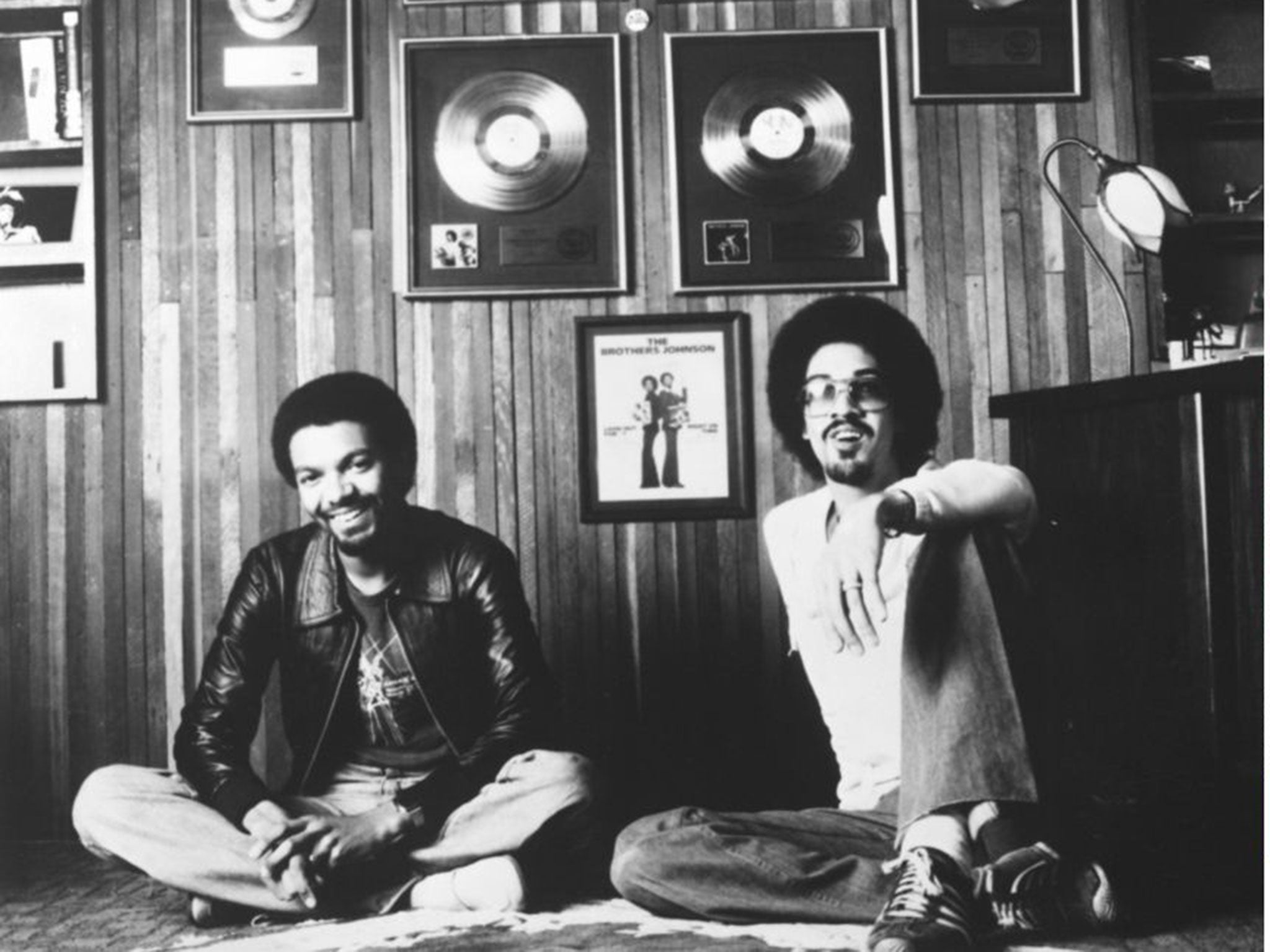Louis Johnson: Bassist whose punchy playing drove hits by the Brothers Johnson, Quincy Jones and Michael Jackson

Nicknamed “Thunder Thumbs”, the Los Angeles-born bassist Louis Johnson pioneered a punchy, in-your-face style of finger-plucking and playing which served as the foundation for several of the biggest-selling records of the late-Seventies and early-to-mid Eighties, including the irresistible floor-fillers and radio recurrents “Don’t Stop ‘Til You Get Enough” and “Billie Jean” by Michael Jackson and the much-sampled “I Keep Forgettin’ (Every Time You’re Near)” by Michael McDonald.
Mentored by the record producer Quincy Jones, Louis and his brother George also scored half a dozen chart hits as The Brothers Johnson, starting with a sublime version of the Shuggie Otis composition “Strawberry Letter 23” in 1977, and including their own infectious compositions “Ain’t We Funkin’ Now”, “Light up the Night” and “The Real Thing”. Their career peak, the Transatlantic smash “Stomp!”, came in 1980. “The song is about people dancing and stomping and having a good time partying,” he said of their signature tune, featuring a slap solo performed on the Music Man StingRay, the trademark instrument Leo Fender built for him.
The youngest of three guitar-playing brothers, who began performing as a quartet with their cousin Alex Weir, Louis became fascinated by the guitarrón, the large acoustic bass favoured by the mariachi bands prevalent in Southern California. He duly switched instruments. By the time he backed the soul musician Billy Preston in the early Seventies, his playing was being compared to that of Larry Graham, the originator of the slapping technique with the psychedelic soul band Sly and the Family Stone – though Louis owed more of a debt to the jazz double bassist Ray Brown and the Motown stalwart James Jamerson.
Already contracted to A&M to arrange and produce a series of jazz-funk albums under his own name, Jones drafted Louis into the recording of Mellow Madness in 1975 and helped The Brothers Johnson secure a deal with the label. Prolific and proficient, the duo hit the ground running with “I’ll Be Good to You” and “Thunder Thumbs and Lightnin’ Licks”, one of two contributions to the soundtrack of Mother, Jugs & Speed, the 1976 comedy starring Bill Cosby, Raquel Welch and Harvey Keitel. Their 1976 debut album, Look Out for #1, sold over a million copies in the US alone, and The Brothers Johnson remained mainstays of the R&B, dance and pop charts until they split in 1982.
Louis added such illustrious names as Patti Austin, Peabo Bryson, George Duke, Aretha Franklin, Earl Klugh, James Ingram and Grover Washington, Jr. to his resumé and also provided the bass part for “We Are the World”, the multi-million 1985 charity single by USA for Africa.
Louis broke strings and blew speakers as a matter of course, but his educational videos and DVDs proved useful aids to the next generation of players. “When I play, I become the bass. I am no longer Louis Johnson, I am the bass. So the bass is in trouble!” he said.
PIERRE PERRONE
Louis E. Johnson, bass guitarist, singer, songwriter: born Los Angeles 13 April 1955; married (two sons); died Los Angeles 21 May 2015.
Join our commenting forum
Join thought-provoking conversations, follow other Independent readers and see their replies
Comments
Bookmark popover
Removed from bookmarks